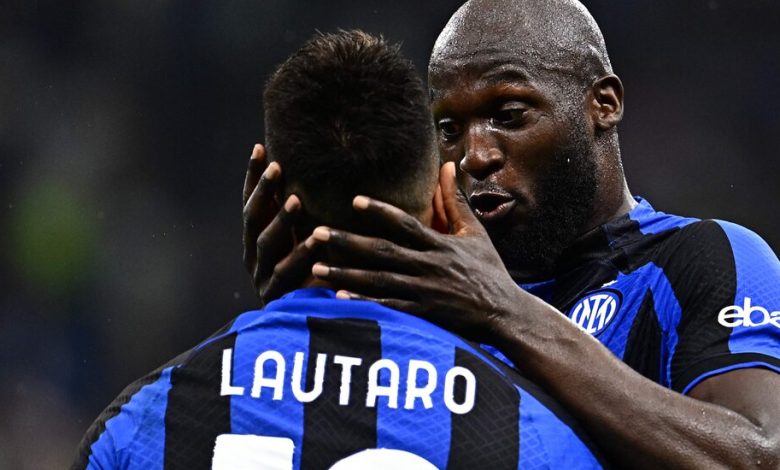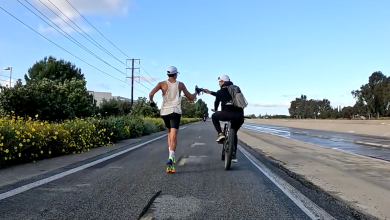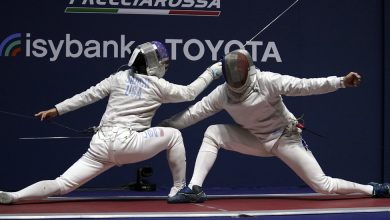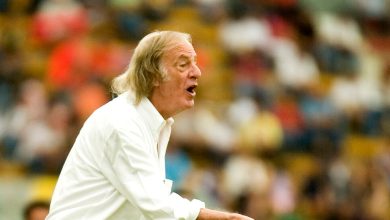Inter Milan, Facing Painful Reckoning, Tries to Live in the Now

MILAN — Barely six weeks ago, Inter Milan defender Milan Skriniar was lying in a hospital bed in France, recovering from spinal surgery. A lumbar issue had been bothering him for some time and, reluctantly, he had decided that endoscopic intervention was required. He had not played a second of competitive soccer since the early days of March, nor has he played since.
Yet when Internazionale names its team for the Champions League final against Manchester City on Saturday — the club’s most significant game in 13 years — Skriniar will, in all likelihood, be among the available substitutes.
His teammate Henrikh Mkhitaryan, the veteran Armenian midfielder, has not played for three weeks after picking up an injury in Inter’s semifinal win against A.C. Milan.
His treatment began immediately: His thigh strain was being addressed even as the celebrations of that victory unspooled around him. Mkhitaryan has not yet been given medical clearance to train with his teammates. Still, there is a decent chance that he will be named in the starting lineup for the biggest game club soccer has to offer.
Manchester City, the overwhelming favorite to win this season’s Champions League, arrives in Istanbul best represented by Erling Haaland: a perfectly-tuned, purpose-built machine, running smoothly, silently, an irresistible masterpiece of engineering.
Inter, on the other hand, is best represented by the likes of Skriniar and Mkhitaryan: It is a team that is creaking, straining, pushing at the outer limits of its ability, an avatar for a patched-up, jury-rigged sort of a club that is held together, these days, by little more than bandages and hope.
There have, certainly, been less likely Champions League finalists than Inter, one of the great old names of European soccer: Bayer Leverkusen in 2002, perhaps, or Monaco a couple of years later, or even Tottenham in 2019. Few, though, made it to the game’s grandest showcase against a background of such uncertainty.
It is not just that Simone Inzaghi, the club’s coach, presides over the oldest squad in Italy, a team in which the focal point of the attack — Edin Dzeko, 37 — might regard the cornerstone of the defense, the 35-year-old Francesco Acerbi, as a youthful ingénue.
Nor is it simply that, for as much as half of the team, this may be the final hurrah in an Inter jersey: Skriniar is one of 11 players whose contracts will expire, or whose loan spells will end, at the close of the current season. That reality has left the club facing the prospect of having to restock its squad almost from scratch.
Inter, though, has far graver concerns about its future. In 2016, Suning, the Chinese retail conglomerate, paid $307 million to take a 70 percent stake in Inter, a deal that was — at the time — seen as the spearhead of China’s sudden, lavish and state-approved investment in European soccer. The new ownership would, in theory, finance Inter’s return to the game’s head table. The team’s training facility would be upgraded. So, too, would the club’s offices. And, of course, the players would follow.
Suning’s ownership has not, on the field, been disastrous. In 2021, Inter won its first Italian title in more than a decade. Inzaghi has subsequently added the Coppa Italia, both this season and last, to the club’s honors. Inter has become something of a mainstay of the Champions League; it made the round of 16 last year, and has reached the final this time.
That relative return to success, though, has come at a cost. Inter is the most indebted club in Italy; according to its most recently published accounts, its total liabilities run at around $931 million. In the last two years for which information is available, it recorded losses of almost $430 million.
It has been caught in a sort of rolling financial crisis for several years, thanks to the combined impact of the coronavirus pandemic, the dwindling support of the Chinese state for investing in European soccer and, most notably, Suning’s own troubles.
In 2021, the conglomerate had to accept a $1.36 billion bailout, financed in part by local government, in the face of its spiraling debts. The same year, it permanently closed its Chinese team, Jiangsu Suning, months after it secured the title, citing the need to focus exclusively on its core retail business. Last year, Steven Zhang, the 32-year-old son of Suning’s founder who serves as Inter’s president, was held liable for $255 million of debt and defaulted bonds in a Hong Kong court.
If Inter has been shielded from the worst of the fallout — it continues to exist; its players still get paid — then it has suffered at least some collateral damage. Suning has been engaged, for years, in efforts to cut costs: In 2021, Antonio Conte, the coach who delivered the Serie A title, stepped down when it became clear that many of the players who had delivered the trophy would have to be sold.
Inter’s two most valuable assets, the forward Romelu Lukaku, now returned to the club on loan, and the defender Achraf Hakimi, left anyway. To save its investment, Suning secured a $294 million loan from Oaktree Capital, a California-based asset management firm, to help with the club’s running costs.
Ever since, Inter’s days of plenty have receded further and further into the past. This season, it spent several months playing without a sponsor on the front of its jersey, a significant and ordinarily reliable source of income for all of Europe’s major teams, after DigitalBits, a cryptocurrency firm, failed to make scheduled payments on its $80 million agreement.
On Saturday, Inter’s jerseys will instead bear the logo of Paramount+, the streaming service that broadcasts both Serie A and the Champions League in the United States. The arrangement is the product of a last-minute deal reportedly worth $4.5 million. For the same fee, Paramount’s branding will appear on the backs of Inter’s jerseys next season.
That sum, though, does not begin to address Inter’s problems. The loan to Oaktree is due next May. With interest, the total sum to be repaid stands at around $375 million. The revenue from Inter’s unexpected run in the Champions League will certainly help with that, but so, too, would acquiescing to another fire sale of talent.
If the club cannot meet its obligations, Suning will automatically cede control of the club to its creditor. “Paying a debt at the level of interest that the club is paying Oaktree is not sustainable,” Ernesto Paolillo, the club’s former general manager, said last month. “Steven Zhang won’t be able to export capital from China and nor will he be able to cover the debt with other resources. He will have no choice but to default on the agreement and sell the club to them.”
“It’s not our plan,” Oaktree’s managing director, Alejandro Cano, said in March, when asked if the firm’s intention was to take control of the club. “We want to work as excellent partners and offer support. But who knows?”
Suning reportedly has opened talks with Oaktree to extend the loan, but it has also started exploring another possibility: an outright sale. Zhang has twice denied that Inter is on the market, insisting last October that he was not “talking with any investors” and reasserting in April that he had “not had talks with anyone.”
In September 2022, though, the boutique investment bank Raine — the firm that handled the sale of Chelsea to Todd Boehly and Clearlake and which is currently overseeing the Glazer family’s efforts to divest itself of Manchester United — won the mandate to seek new ownership for Inter.
Several parties have expressed an interest in buying the club, according to executives with knowledge of the talks who insisted on anonymity to discuss the sensitive discussions. A handful, largely drawn from the United States and including both private families and equity investors, have been given a tour of Inter’s facilities and a broad rundown of its accounts.
So far, though, there has been one major sticking point: the cost. Suning values the club at around $1.2 billion, not coincidentally the exact amount that RedBird Capital Partners paid to buy A.C. Milan last year. Given the realities of Inter’s financial position, nobody has yet been willing to bite.
That has left Inter in purgatory. In negotiations, the club remains defiant: Those who have worked on transfers with Inter in recent months have noted that at no point have its executives pleaded poverty. The club retains an undeniable, undimming appeal, too. Lautaro Martínez, its World Cup-winning striker, was presented with a chance to leave last summer but chose to reject it, so settled did he feel in the city and at Inter itself.
Pride, though, does not pay the bills. There have been times when cash has been in such short supply that the club has not been up-to-date on its share of the payments for the architects and designers working on the stadium it is intending to build, together with A.C. Milan, not far from San Siro.
Inter, perhaps, cannot afford to think about the future now. It arrives in the Champions League final battered and bruised, taped and strapped, aging and fading. There is a chance — slim, but a chance nonetheless — of glory in the immediate present. What it means, where it goes from here, can wait for another day.




